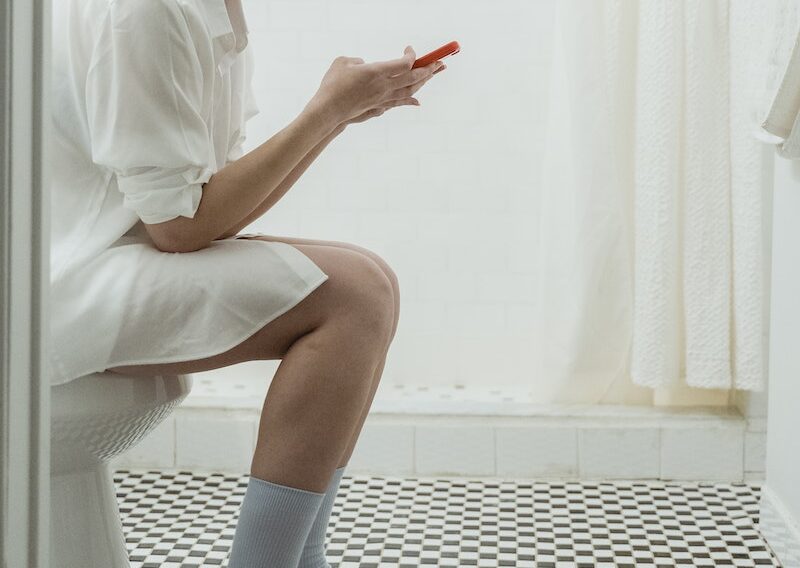You may have heard that it’s important to pee after sex because it helps prevent UTIs. That’s true — for females, the bacteria that causes a UTI travels up to the bladder through the anus and vagina.
But will peeing after sex help you avoid pregnancy or STDs? That’s a bit more complicated.
What is sperm?
Sperm are male gametes, tiny cells that contain a set of 23 chromosomes that fuse with the chromosomes in an egg to create a fertilized egg. The fertilized egg can then develop into a baby. Sperm are produced in the testicles and released during sex in a fluid called semen (say: SAM-en).
Semen is a mixture of sperm cells and secretions from the prostate and a pair of rabbit ear-shaped organs inside the pelvis called the seminal vesicles. Semen provides a safe swimming medium for sperm that contains elements like fructose, ascorbic acid, nitrogen, vitamin B12, and salts to nourish them as they swim through the vaginal canal, the cervix, and into the uterus.
After ejaculation, only about 200 sperm make it all the way to an egg in a mammalian female reproductive tract. To do so, they have to swim for many miles. They must navigate a maze of obstacles along the way. They must also overcome a number of booby traps that the body makes to ensure that only the strongest, most competitive sperm reach an egg.
To make it to an egg, sperm first breaks down the hard outer shell of an egg with enzymes they carry in an oval-shaped structure on their head called the acrosome (say: ah-CROO-som-us). Then, sperm uses chemicals from the acrosome to penetrate the inner layer of an egg.
How does sperm get to the uterus?
Sperm leaves the penis in a fluid called semen (see-mun) and enters the female body through the vagina during unprotected sex or other sexual activity. From there it starts its long journey to reach an egg.
The sperm cell is streamlined for this purpose – it has a tail to help it move, lots of mitochondria to power that movement, and genetic information encoded in a protein found in its cap (called an acrosome). A sperm can survive inside the woman’s body for up to 72 hours. But it only has a window of opportunity to meet an egg if it happens within that time period following ovulation.
After ejaculation, 40 million to 150 million sperm cells start swimming upstream toward the fallopian tubes on their mission to fertilize an egg. But only a handful of them will make it to the egg. A sperm cell has to break through a group of cells called the cumulus oophorus that surrounds the egg. The sperm cell also has to break through the outer membrane of the egg, which is impenetrable to other sperm cells, and then it needs to penetrate the egg’s nucleus (1,6).
This is no easy feat. But if the sperm cell makes it all the way to the egg, the two cells fuse into a single cell known as a zygote. The zygote then travels through the fallopian tube and into the uterus, where it fuses with the uterine lining. This is called implantation, and it’s when pregnancy happens.
Will peeing after sex prevent a UTI?
Whether you’re a woman or a man, you probably know that peeing after sex is an important part of safe sex. But does it actually help?
Many people have heard from their friends, older sisters, or even doctors that it’s important to always pee after sex because this will prevent urinary tract infections (UTIs). UTIs are caused by bacteria entering the urethra through the vagina or anus and then traveling up to the bladder. The goal of peeing after sex is to help flush the bacteria that enters the urethra during intercourse out of the body before it can cause an infection.
This is especially helpful for women because the path from the urethra to the bladder is much shorter for females than it is for males. That’s why it’s generally recommended that women pee after sex more often than men.
However, the truth is that there aren’t any solid scientific studies that show that peeing after sex is actually effective. That being said, it certainly won’t hurt to do it! Just make sure to drink plenty of water and use lubricant before peeing, as this will help with the flow. Also, try to be as quick as possible. Doing it too long can actually make the situation worse. For example, if you’re trying to get pregnant, a change in hormones can trigger a urinary tract infection that could affect your pregnancy and lead to complications like high blood pressure for you or low birth weight for your baby.
Will peeing after sex prevent an STD?
You’ve probably heard from friends, older sisters, and even doctors that you need to pee immediately after sex to prevent a urinary tract infection, or UTI. But there’s no concrete scientific proof that peeing after sex does anything more than relieve your bladder of some seminal fluids (also known as precum).
Yes, sex can cause UTIs because it introduces bacteria from the anus or vagina to the urethra. But staying hydrated and peeing regularly can help flush bacteria away from the urethra and bladder, and that’s especially important for females because their urethra is shorter than a penis. Females are also up to 30 times more likely to get a UTI than males.
Sadly, peeing after sex will not prevent an STD in the same way that it can prevent a UTI. That’s because sperm and urine are two different things that travel through completely separate holes in the body: a urethra for men, and a vagina for women.

